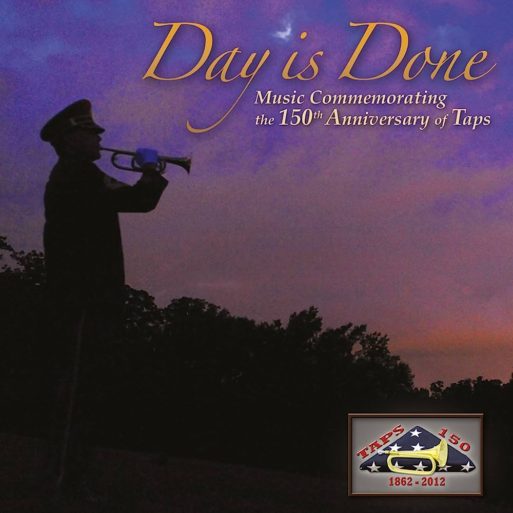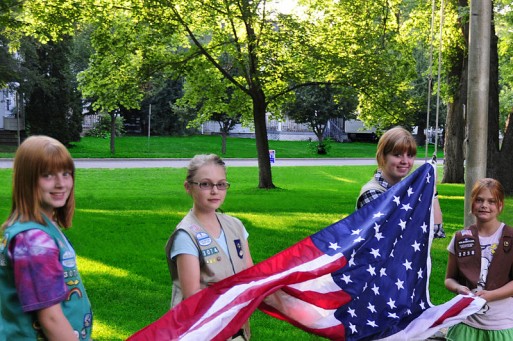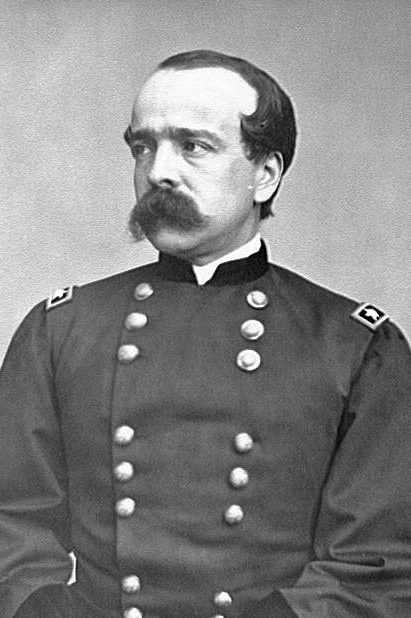 When it comes to funeral music, there is one haunting melody that reigns supreme in the minds of Americans. Having origins in the 1800s, Taps goes by many names, including Day Is Done, Lights Out, Extinguish Lights and Butterfield’s Lullaby. If your fallen hero or you have chosen to take part in the long-standing tradition of a military funeral, then the playing of Taps is a mandatory part of the ceremony. And for good reason too, as Taps has been intertwined with American military history since the Civil War, when the true unification of our country was cemented in history. But more than this, Taps is a song of peace and rest. Often cited by most Americans as one of the most beautiful bugle calls, the origins of the melody lie in the call to soldiers to go to bed. To understand more about how a song of rest made its way into the time-honored tradition of American military funerals, we need only take a closer look at the colorful history of the song itself.
When it comes to funeral music, there is one haunting melody that reigns supreme in the minds of Americans. Having origins in the 1800s, Taps goes by many names, including Day Is Done, Lights Out, Extinguish Lights and Butterfield’s Lullaby. If your fallen hero or you have chosen to take part in the long-standing tradition of a military funeral, then the playing of Taps is a mandatory part of the ceremony. And for good reason too, as Taps has been intertwined with American military history since the Civil War, when the true unification of our country was cemented in history. But more than this, Taps is a song of peace and rest. Often cited by most Americans as one of the most beautiful bugle calls, the origins of the melody lie in the call to soldiers to go to bed. To understand more about how a song of rest made its way into the time-honored tradition of American military funerals, we need only take a closer look at the colorful history of the song itself.
Day is done, gone the sun,
From the hills, from the lake,
From the sky.
All is well, safely rest,
God is nigh.Credit: Wikipedia
The most commonly accepted story for the creation of Taps is that it was written by Daniel Adams Butterfield with the help of brigade bugler Oliver Willcox Norton in 1862. As the story goes, Butterfield had originally embarked on his endeavor to create Taps as a replacement for the current Lights Out song, which he was very unhappy with. While there is some controversy over the exact date by which the song was written—both soldiers claim that it was written in the wake of the Seven Days Battle—by Norton’s own admission in 1898, Butterfield played the larger role in crafting the lyrics and creating the melody, which he based off of an older Lights Out song called Scott’s Tattoo.
Fading light, dims the sight,
And a star gems the sky, gleaming bright.
From afar, drawing nigh, falls the night.
The origin of Taps as a funeral song is steeped in a bit more mystery, due mostly in part to the lack of documentation we have on funeral songs of the 1800s. While it is likely that the song may have been used prior in tandem with funerals, the first known record that we have of Taps being used as a funeral song is in 1862 during the peninsular campaign in Virginia. As the story goes, a cannoneer of the 2nd Artillery who was killed in action was being buried close to enemy lines. To keep the enemy from locating the rest of the battery, the sounding of Taps was played to replace the traditional three volleys that would normally be fired to honor the fallen hero. From this point on, more documented cases of Taps being used as a funeral song, began to appear.
Thanks and praise, for our days,
‘Neath the sun, ‘neath the stars, neath the sky;
As we go, this we know, God is nigh.
Perhaps the most beautiful aspect about Taps as a memorial song is the place that it has for many of us as a nostalgic part of our own childhoods. While the song remains a mandatory part of military funerals, to this day, it also continues to be the quintessential Lights Out song for both the Boy Scouts and the Girl Scouts of America. The song itself has been soothing scouts and soldiers into sleep for centuries. Above all, Taps is a welcome harbinger of peace that contrasts the busy, active and sometimes hectic activities of the day. And what better way is there to send off a soldier than with a nostalgic lullaby welcoming the calm of the night?

Credit: Wikipedia
To this day Taps remains an integral part of American culture with many versions being taught around the country. You can find one version of the song here.
Or you can listen to this interpretation here:
You can check out our selection of memorial songs here.

 “Taps” by Major General Daniel Butterfield
“Taps” by Major General Daniel Butterfield



 “As Tears Go By” by Marianne Faithfull
“As Tears Go By” by Marianne Faithfull
 “The Sea” by John Banville
“The Sea” by John Banville
 Funeral Favors Offer Visitors a Tangible Memento
Funeral Favors Offer Visitors a Tangible Memento















